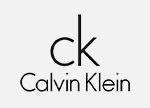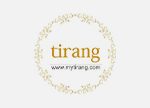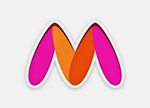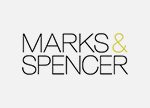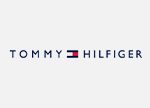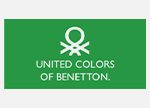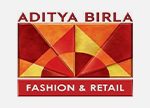The Course
Diploma in Fashion Design
Transform your Passion into Fashion Mastery
These Diploma programmes are designed for participants looking to enter the design world, and provide a complete education allowing participants to acquire the necessary knowledge and skills to pursue a career in the chosen field.
BENGALURU
Duration
3 years (full-time)
Eligibility
10th/SSLC/SSC from the recognised boards
Certificate Type
Diploma
Diploma Issuing Authority
Collaboration with UGC Recognised University
Programme Overview
This comprehensive 3-year programme for diploma in fashion and design lays the foundation for a successful career in fashion design. Develop strong technical skills in sketching, patternmaking, draping, garment construction, and textile knowledge. Learn about the fashion industry, design process, and professional practices to prepare for a range of design roles.
Diploma in Fashion and Design enhances and refines the creative language of students and enables them to identify and develop their skills. Following a rigorous curriculum covering the fundamental methodologies that inform the practice of fashion design, the students are also exposed to various growing digital and technical tools. Students develop an advanced understanding and application of fabrics, pattern cutting, garment construction and draping, along with a research-driven design process. The learning is further augmented by various workshops that introduce them to the evolving, versatile and interdisciplinary nature of fashion design along with the development of various skills. Students are exposed to trends and are equipped with the skill to interpret and analyse forecasts. The diploma in fashion and design program also trains and develops marketing and entrepreneurial skills in the students in order to enable them to efficiently sustain themselves.
- PROGRAMME OBJECTIVE
- LEARNING OUTCOMES
- CURRICULUM
- EVALUATIONS
- ASSESSMENTS METHOD
- CAREER OPPORTUNITIES
- PLACEMENTS
- The Diploma in Fashion and Design provides students with a comprehensive understanding of fashion design principles, from concept creation to final execution.
- To equip students with practical skills in garment construction, fabric selection, and design visualization.
- To foster creativity and innovation in fashion design while maintaining an awareness of current trends and industry standards.
- To develop students’ technical proficiency in fashion design software and tools, ensuring they are industry-ready.
- To cultivate an understanding of the business side of fashion, including marketing, branding, and entrepreneurship.
Under the Diploma in Fashion and Design course students will be able to:
- Develop a well-rounded perspective on fashion design by blending theory, history, and innovation, while exploring its potential for growth and evolution.
- Nurture a personal creative vision and identify key areas for specialization in fashion design.
- Build expertise in designing fashion collections and utilizing trend forecasting platforms like WGSN (Worth Global Style Network) for accurate market predictions.
- Gain a thorough understanding of fashion design practices and methodologies, ensuring competence in their application.
- Acquire practical experience in textile and garment construction processes, enhancing design knowledge.
- Enhance technical proficiency through intensive training in draping, pattern-making, and digital tools to master design execution.
Semester 1
- Fundamentals of Art
- Art Appreciation
- Elements of Textile – I
- Fashion Theory
- Foundation Art Studies
- Draping – I
- Fashion Illustration
- Surface Design Techniques – I
Semester 2
- Pattern Drafting – I
- Design Process
- Elements of Textile – II
- Surface Design Technique – II
- Construction Technique – I
- Fashion Illustration – II
- Textile Workshop
Semester 3
- Pattern Drafting – II
- Graphic Design – I Adobe Photoshop
- E-Commerce
- Fashion Sourcing
- Construction Technique – II
- Draping – II
Semester 4
- Graphic Design – II
- History of Costume
- Fashion Marketing
- Fashion Merchandising
- Craft Study
- Graphic Design – II Adobe Illustrator
Semester 5
- Fashion Entrepreneurship
- Fashion Visual Merchandising
- Fashion Styling
- Fashion Forecasting
- Portfolio
- Fashion Illustration – III
Semester 6
- Business Communication & Professional Practices
- Retail Management
- Brand Management
- Fashion Law
- JD Design Awards
- Internship
(Note – ***Sunrise University Kindly contact the Academic Counsellor for clarificatiion related to your respective courses.)
- Case Study Analysis: Real-life industry examples are used to assess students’ ability to translate theoretical knowledge into practical applications.
- Industry Immersion: Visits to fashion industry locations are mandatory, providing students with insights into trends and current practices.
- Independent Learning: Students take the initiative to study independently, which strengthens and broadens their understanding of course concepts.
- Classroom Teaching: Essential academic content is delivered in structured lectures to ensure a comprehensive understanding of key topics.
- Engagement in Seminars: Students participate in debates and discussions that promote critical thinking and help articulate their ideas effectively.
- Hands-on Workshops: Practical sessions that simulate industry environments to develop both creative and technical competencies.
- Technical Skill Assessments: Practical assessments used to measure students’ proficiency in technical aspects of design.
- Group Collaboration: Team-based tasks encourage cooperative learning and allow students to experience the benefits of working together.
- Internal Assessments: Ongoing evaluations to track students’ academic development and comprehension throughout the course.
- Projects: Research and design projects, both individual and group-based, to demonstrate students’ deep understanding of key concepts.
- Semester Examinations: Formal, time-bound tests to assess students’ grasp of the subjects taught during the semester.
- Presentations: Used to evaluate students’ understanding of topics, as well as their communication, professionalism, critical analysis, and ability to defend their conclusions.
- Portfolio Assessment: An evaluation of students’ work, from the initial concept to final execution, highlighting their creative and technical progress.
- Self and Peer Assessment: Encourages self-reflection and peer evaluation, helping students become independent learners while integrating assessments into the learning process.
- Thesis Assessment: An independent research project designed to test the viability of a design concept or idea, contributing to a deeper understanding of the subject.
The career opportunities that students can choose from after competing the Diploma in Fashion Design course are :
- Fashion Designer
- Fashion Designer
- Costume Designer
- Illustrator
- Fashion Buyer
- Stylist
- Trend Analyst
- Fashion Product Manager
- Sewing Technician
- Educator
- Blogger
- Clothing/Textile Technologist
- Merchandise Planner/Allocator
- Fabric Researcher
- Print Designer
- Pattern Designer
FAQ
The Diploma in Fashion Design covers a comprehensive range of topics, providing students with both creative and technical skills required for a successful career in fashion. Key areas include fashion illustration, garment construction, pattern making, textile studies, draping techniques, and design visualization. The curriculum also integrates contemporary subjects like sustainable fashion, fashion marketing, and consumer behavior, ensuring students gain a holistic understanding of the fashion industry.
The Diploma in Fashion and Design is a one-year full-time program. The course is structured to include theoretical learning, hands-on training, and project-based assessments, enabling students to gain industry-relevant skills within a short duration. The intensive nature of the program ensures that students are well-prepared for entry-level roles in the fashion industry or advanced studies in related fields.
A: JD School of Design facilitates opportunities for students to intern with leading fashion houses, design studios, or retail brands. These internships provide valuable real-world experience, helping students understand industry dynamics, build professional networks, and apply their skills in practical settings. Additionally, live projects and collaborations with industry professionals are integrated into the curriculum to offer similar hands-on exposure.
A: Yes, the Diploma in fashion and design emphasizes practical learning through workshops, studio sessions, and projects, allowing students to apply their skills in real-world scenarios.
A: Students have access to modern sewing and pattern-making labs, textile libraries, fashion studios, and computer labs equipped with design software.
A: Students graduating after completing diploma in fashion and design will have a professional portfolio that includes:
- Fashion illustrations.
- Completed garment prototypes.
- Pattern designs and textile explorations.
- This portfolio is a valuable asset for job applications or further studies.

